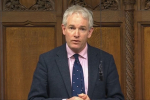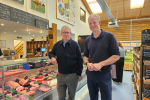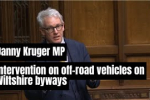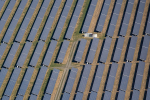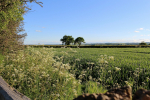
We have an absolute moral obligation to steward the natural environment that we live in, and to ensure a good living for the people who look after the land.
In the 20th century farming pulled off a miracle of productivity, generating huge yields to feed our growing urban population. But it did so by means of techniques - especially fertilisers and pesticides - that harm the soil and the water. The revolution in food production and processing also saw additives go into our diet to make it last longer and taste more delicious - but at a real cost to our health. The result is an environment and a population that are unhealthy.
Brexit means the UK no longer has to pay landowners simply to own land - a bad and wasteful system that did nothing for the environment or human health. The challenge now is to bring in a system that supports farmers to do the costly business of environmental stewardship without causing them to sacrifice land needed for food production (especially vital in an age of global insecurity). The new system also needs to be as simple as possible, and to give farmers long-term visibility of the money they can expect to receive. And we need to incentive - and where necessary compel - food processors to make affordable, nutritious food.
I am glad that following campaigning by me and others, the Government has recognised food production as the primary objective of farming, and ruled that stewardship schemes can only be used for a portion of a farm's land. We still have a way to go to get the farming economy right, however. I am particularly troubled by the incentives in the system to turn agricultural land in our beautiful county over to vast solar farms, and I am campaigning vigorously to change the rules on this.




